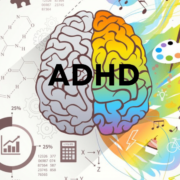
Kidney disease is not easy to manage, especially for a new patient with no family history of kidney issues, but it is still a prevalent health issue. According to the National Kidney Foundation, 37 million adults in the United States are affected by chronic kidney disease (CKD). Proper nutrition plays a crucial role in maintaining kidney health and preventing further complications. Nourish 2 Rise will guide you toward the renal nutrition basics and will provide practical renal nutrition daily tips to help new patients navigate their dietary journey.
Understanding Renal Nutrition
What is Renal Nutrition?
To understand renal failure it’s a must to first start with the basics. Understanding basic renal or kidney function will lead you to better disease management. When a Dr. suggests a patient renal nutrition that means nutrition that aims to assist the renal function and overall health of the patient. As we all know kidneys are the location where all of our body’s gunk gets filtered and our body gets pure and healthy nutrients and elements from the food we eat and from the water drink. A good diet can help reduce the workload on the kidneys and prevent the buildup of harmful substances.
Why Renal Nutrition is so Important?
Now from the understanding of renal function and its nutrition, you must have understood why it is important to have an intact kidney function. With proper diet and nutrition renal function can be spared and hence it will keep all of the organs safe as well. Water is not the only component of your diet that will keep your kidneys healthy but different components will assist the functionality of the kidneys. To ensure a healthy kidney these components are a must.
Remember These Components of Renal Nutrition
Protein Intake
One of the fundamental aspects of renal nutrition is managing protein intake. While protein is essential for building and repairing tissues, excessive protein can put a strain on the kidneys. Patients with CKD are often advised to limit their protein intake to prevent further kidney damage. Opt for high-quality protein sources such as lean meats, poultry, fish, and plant-based proteins like beans and lentils.
Sodium Consumption
Love those instant noodles? They are destroying your kidneys. The increased amount of sodium in the bloodstream is proportional to blood pressure and fluid retention. Try to limit sodium intake to less than 2,300 milligrams per day. Stay away from processed foods, canned soups, and salty snacks. Instead, use herbs and spices to flavor your meals without adding extra sodium.
Potassium and Phosphorus
Now, thinking of sodium as the only culprit will not get you anywhere. You also need to track your potassium and phosphorus intakes. One of the reasons for kidney malfunction is the increment of these two nutrients.
Potassium: High potassium levels can affect heart function. Limit foods high in potassium, such as bananas, oranges, potatoes, and tomatoes. Opt for lower-potassium alternatives like apples, berries, and cauliflower.
Phosphorus: Excess phosphorus can weaken bones by pulling calcium from them. Avoid foods high in phosphorus, such as dairy products, nuts, seeds, and colas. Choose foods with lower phosphorus content like rice milk, zucchini, and cucumbers.
Renal Nutrition Daily Tips
Meal Prep is Effective
Meal planning is an essential part of managing renal nutrition. Plan your meals in advance to ensure they meet your dietary requirements. Use resources like renal diet cookbooks or consult a renal dietitian for personalized meal plans. Incorporate a variety of foods to ensure a balanced diet while adhering to renal nutrition basics.
Filtration Needs Water
Proper hydration is important, but patients with kidney disease need to monitor their fluid intake to avoid overloading the kidneys. Discuss your fluid requirements with your healthcare provider, and track your daily fluid intake. Remember, fluid includes not just water, but all beverages and foods that are liquid at room temperature.
Portion Size Control Can be Helpful
Keeping an eye on portion sizes can help manage nutrient intake and maintain a healthy weight. Use smaller plates, bowls, and measuring cups to control portion sizes. Be mindful of serving sizes when eating out or ordering takeout.
Make Food Labels Your Friend
Reading food labels is a valuable skill for kidney patients. Look for information on sodium, potassium, and phosphorus content. Avoid foods with added phosphate additives, often listed as “phos” on ingredient labels. Choose fresh or frozen foods over canned or processed options whenever possible.
Kidney-Friendly Recipes are the Key
Experimenting with renal-friendly recipes can make your diet enjoyable and varied. Look for recipes specifically designed for kidney patients that incorporate low-sodium, low-potassium, and low-phosphorus ingredients. Websites, cookbooks, and renal dietitians are great resources for finding delicious and safe recipes.
Make Your Dietitian Your Gut Brain
Regular consultations with a renal dietitian are crucial for maintaining a healthy diet. A dietitian specializing in renal nutrition can provide personalized advice, adjust your meal plans, and offer support as your condition changes. They can help you understand renal nutrition basics and provide ongoing renal nutrition daily tips to keep you on track.
The Role of Vitamins and Minerals in Renal Nutrition
Essential Vitamins and Supplements
Patients with kidney disease often require specific vitamins and supplements to compensate for dietary restrictions and ensure they receive adequate nutrition. Some key vitamins and supplements that may be necessary include:
Vitamin D: Helps maintain bone health and calcium balance. Since kidney disease can lead to low vitamin D levels, a supplement may be needed.
Iron: Anemia is common in kidney disease, and iron supplements can help manage this condition,
B Vitamins: These are crucial for energy production and overall health. Since kidney disease can affect B vitamin levels, supplements may be recommended.
Does Renal Nutrition Even Help? Yes
It Helps Manage Blood Pressure
One of the significant benefits of adhering to renal nutrition basics is improved blood pressure management. High blood pressure is both a cause and a consequence of kidney disease. By following a kidney-friendly diet, patients can help control their blood pressure, reducing the risk of further kidney damage and cardiovascular complications.
You Will See an Improved Quality of Life
Proper renal nutrition not only supports kidney health but also enhances the overall quality of life. Patients often experience increased energy levels, better control of symptoms, and a more positive outlook on managing their condition. By incorporating renal nutrition daily tips, patients can enjoy a balanced diet that supports their health and well-being, making the journey with kidney disease more manageable.
There Are Challenges but Also Solutions
Want to Eat Out? Not So Sure?
Havenìt had a dinner out in years? Can’t resist anymore? You don’t have to. Just try to be cautious with the food choices and you are good to go. Research the menus and their diverse option the safest option for you can be Vegan. You can also tweak your favorite dish a little bit by requesting the chef and explaining your issue. Dining out can be challenging for kidney patients, but with some preparation, it can be managed.
Munching is Tricky
Are you that person who loves munching? It is indeed tricky to stop yourself from having those sugary and sodium-loaded munching packets. But that’s where the true test lies. Try to substitute your munching with natural ingredients like fruits, nuts, and maybe some low-salt, low- fat crackers.
Motivation is the Key
Renal nutrition diet wants your blood and sweat but once you get a hold of it you can do wonders in your disease management. Not just that you need to keep yourself away from all distractions. So, maybe you can make a group with people who have similar goals like you and this way you can keep yourself and yourself motivated. Another way is to keep having regular visits to your nutritionist and your renal specialist so that they can encourage you and guide you better to help you not get lost.
To Sum it Up
Understanding renal nutrition basics is essential for new patients managing kidney disease. By incorporating renal nutrition daily tips into your routine with the support of Nourish 2 Rise, you can take control of your health and improve your quality of life. Remember to prioritize protein management, control sodium intake, and regulate potassium and phosphorus levels. The mentioned tips are a general way to see through this problem but in reality, every disease management requires personalized nutrition and guidance. And you can get that from Nourish 2 Rise and this might be a turning point in your health. So don’t wait and start your journey of a healthy life today!







